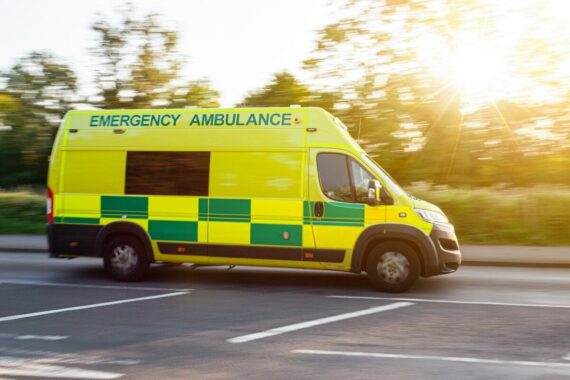The Government is making £200m available for local areas to buy up thousands of extra care home beds in an attempt to speed up hospital discharge.
It said in an announcement today that the funding will allow ICBs to immediately buy short-term care placements for people who are medically fit to be discharged.
The money will cover maximum stays of up to four weeks per patient until the end of March.
According to the Government, there are currently around 13,000 people in hospital who are fit for discharge and moving them out will reduce A&E pressures and speed up ambulance handovers.
It added that discharged patients will be given the support they need to continue their recovery from GPs, nurses and other community-based clinicians.
But the NHS Confederation said in a statement that while the funding was welcome, the push to move people out of hospital could have ‘unintended consequences’ for primary care, by putting ‘additional pressure’ on ‘already very stretched’ services.
NHS Confederation chief Matthew Taylor also said that the plans risked discharged patients being placed in residential care ‘inappropriately’ and then remaining there ‘indefinitely’.
In addition to the £200m, the Government has pledged £50m capital funding to upgrade and expand hospitals, including new ambulance hubs and facilities for patients about to be discharged.
Long-term solutions to freeing up hospital beds are also to be trialled by six national ‘Discharge Frontrunners’ – the Northern Care Alliance, Sussex Health and Care, Humber and North Yorkshire, One Croydon Alliance, Leeds Health and Care Partnership and Warwickshire Place, it said.
Health and social care secretary Steve Barclay said: ‘The NHS is under enormous pressure from Covid and flu, and on top of tackling the backlog caused by the pandemic, Strep A and upcoming strikes, this winter poses an extreme challenge.
‘I am taking urgent action to reduce pressure on the health service, including investing an additional £200 million to enable the NHS to immediately buy up beds in the community to safely discharge thousands of patients from hospital and free up hospital capacity, on top of the £500 million we’ve already invested to tackle this issue.’
This comes as some GPs have said they have stopped trying to phone ambulances for seriously unwell patients, due to the current response times for urgent care.
Meanwhile the London Ambulance Service has asked for urgent support from GPs and practice nurses to help cover upcoming strike action.
Pulse October survey
Take our July 2025 survey to potentially win £1.000 worth of tokens














